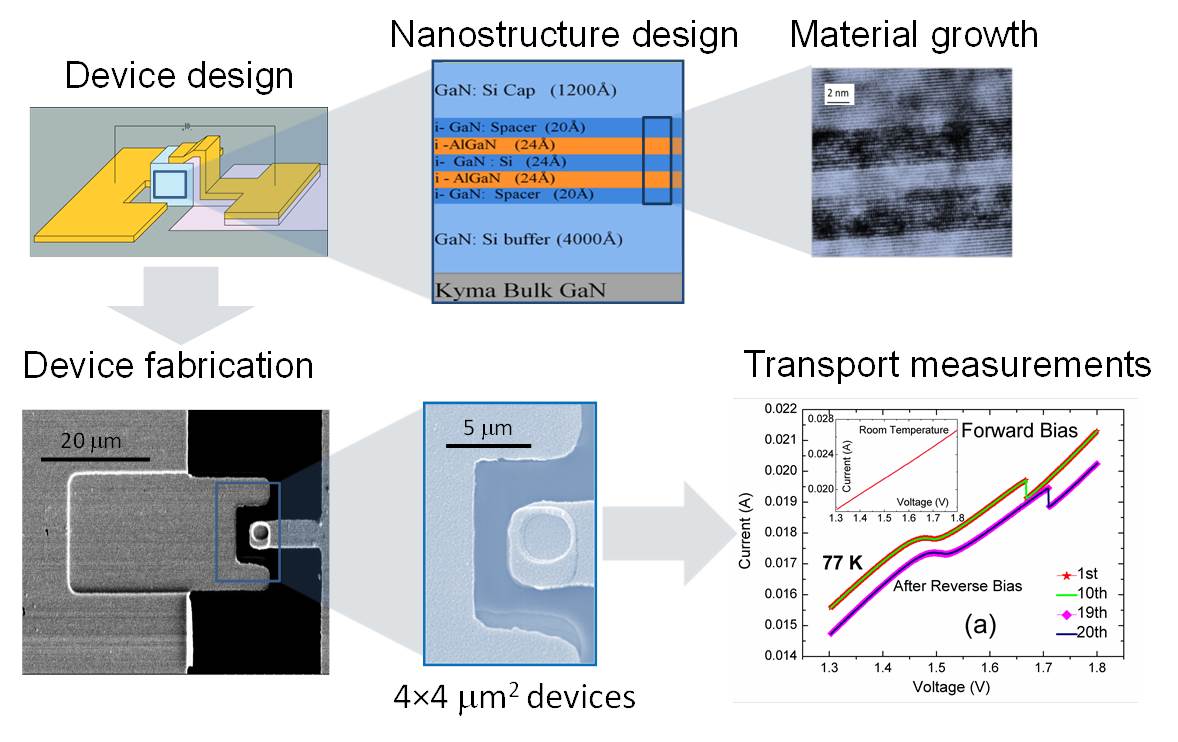Nitride resonant tunneling diodes

We are also studying vertical charge transport in nitride devices. These devices include nitride resonant tunneling diodes (RTDs) using lattice-matched AlInN and low Al-composition (Al0.15Ga0.85N) barriers for near- and far-infrared intersubband devices, respectively, and infrared photodetectors. We recently reported exactly reproducible negative differential resistance signatures at 77 K from Al0.18Ga0.82N/GaN RTDs on c-plane GaN. To limit the effects of dislocations on vertical transport, the RTDs were grown on free-standing c-plane GaN substrates from Kyma Tech (dislocation density < 5×106 cm-2), and the device dimensions were reduced to 4 × 4 µm2. The barrier Al-composition was chosen to be 18% to minimize the chance of AlGaN relaxation during MBE or subsequent device processing. Since the electric field across a barrier depends on applied bias and built-in polarization field, the low Al-composition barrier also limits polarization discontinuities, another major challenge in nitride semiconductors. The peak-to-valley ratio did not degrade measurably upon repeated scanning and was found to be comparable with the values reported for defect-free single GaN quantum disks in double-barrier AlN/GaN nanowires. The area sensitivity of the I-V curves was attributed to leakage conduction through conductive dislocations. The study concluded that further improvements of epilayer growth, optimization of the device layer structure, and further substrate defect reduction are essential for achieving room-temperature operation but within technological reach. These results are important for the prospects of nitride quantum cascade lasers, especially for the far-infrared (Terahertz) range.
